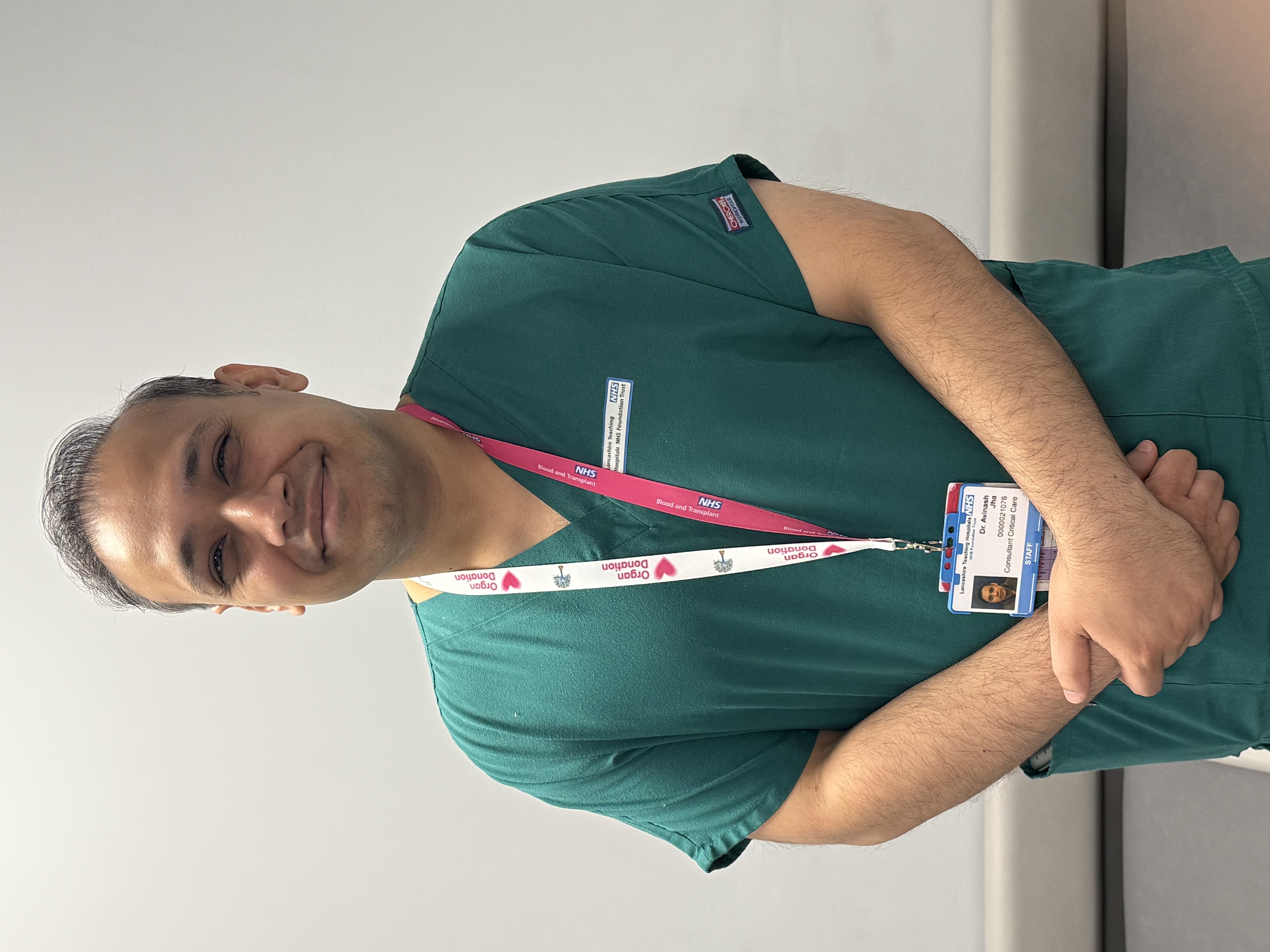 Lancashire Teaching Hospitals’ Avinash Jha has become the first Intensive Care Unit Consultant in the United Kingdom to achieve the European Society of NeuroSonology and Cerebral Hemodynamics (ESNCH) certification.
Lancashire Teaching Hospitals’ Avinash Jha has become the first Intensive Care Unit Consultant in the United Kingdom to achieve the European Society of NeuroSonology and Cerebral Hemodynamics (ESNCH) certification.
Dr Jha was recently awarded the internationally-recognised neurosonology certification in Budapest, Hungary, after passing a demanding two-part exam. This much-coveted qualification now formally recognises his ability to use ultrasound to examine the brain at the bedside, a skill previously limited mainly to neurologists.
"I'm proud to be the first ICU Consultant in the UK to achieve this, and I am looking forward to contributing to service delivery and enhance patient care in the ICU," Dr Jha said.
“I have spent over a decade using point-of-care ultrasound (POCUS), which has largely been integrated into my critical care decision-making. My practice of ultrasound of the brain now has formal acknowledgement and a boost to credibility to provide care at a higher level for the evaluation and treatment of patients.”
Dr Jha said he intends to use his expertise to expand the use of bedside brain ultrasound: “I am dedicated to enhancing the establishment of point-of-care neurosonology in critical care. I will do this by training, mentoring and developing services to ensure that critical care staff can learn to use brain ultrasound as a new and powerful non-invasive tool to improve neurological examination and outcome of the critically ill.”
He also credited the support of his team: “This would not have been possible without the support from my colleagues, especially Dr Peter Frank (Consultant Critical Care) and Dr Sudhindra Kulkarni (Clinical Director and Consultant Critical Care). I want to thank them wholeheartedly.”
The ESNCH certification is widely regarded as one of the most advanced qualifications in the field of brain ultrasound. It requires mastery of both theory and hands-on application. Despite its value, few clinicians outside of neurology/stroke hold this certification: “It comes down to awareness - many clinicians simply aren’t familiar with this modality. Also, the skill set is more commonly associated with neurology leading this service, especially in Europe.
“In the ICU settings, it’s still evolving, particularly here in the UK. However, given that we are a tertiary neurosurgical centre, there's significant demand for this skill. If we have the right people and expertise, we can really add value to the service and potentially lead the way.”
The path to certification is not easy. Dr Jha explained: “The theory component involves a lot of physics. It was challenging - it pushed me out of my comfort zone and enhanced my clinical practice. The pass rate isn’t very high, possibly around 30%, so it demands genuine commitment and a solid grasp of unfamiliar concepts.”
Dr Jha’s motivation came from his years of experience and a desire to formalise the work he was already doing: “I’ve been working with this technique for around seven years. It’s like an ultrasound you’d use for a baby or a heart scan (echo) but applied to the brain. People believed it wasn’t feasible due to the skull acting as a barrier in adults. But you can still gather a surprising amount of information about cerebral circulation.
“Over the years, I found myself thinking: ‘I’m doing this regularly, but without formal accreditation, how can others trust my findings or allow me to train others?’ That led me to explore certification options, and I found the European Neurosonology website. I applied, prepared, and with support from my colleagues, especially Peter Frank and Dr Sudhindra Kulkarni, here we are.”
Dr Jha explained that while portable and handheld ultrasound devices can be helpful, he prefers full-screen equipment for better resolution. However, he recognises a growing role for AI-enabled handheld tools in emergency and mobile settings.
Beyond assessing cerebral circulation, Dr Jha says the technique is useful for detecting other issues: “We’ve used it to identify medical conditions in patients too unstable for immediate CT. In one case, we suspected a stroke at the bedside, stabilised the patient, then confirmed it with imaging. We’ve presented such cases at national conferences.”
He emphasised that the scanning is focused and problem-driven and is already widely used in ICU for assessing the heart and lungs: “We can detect fluid around the lungs, pneumonia, or even air leaks - all through bedside lung ultrasound. These help us make quick, informed decisions. If we identify an issue, we’ll call in the specialists for formal imaging.”
As critical care evolves, Dr Jha believes tools like neurosonology are crucial for saving lives: “If you can pick things up earlier, it’s a huge advantage. Over the past two or three decades, things have progressed remarkably - from relying solely on clinical signs and waiting for test results, to using non-invasive tools like ultrasound that deliver immediate insights. It’s all about faster, safer, and more accurate decision-making at the bedside. And that’s where this skill really makes a difference."







